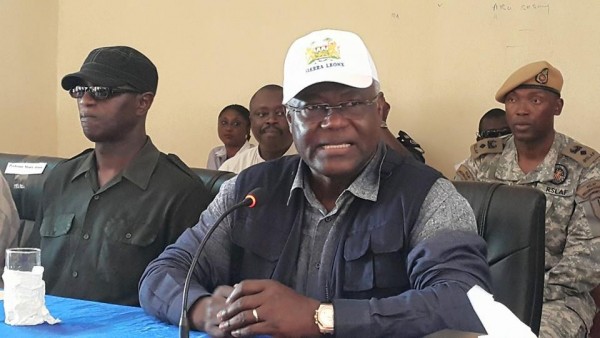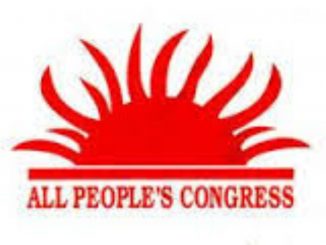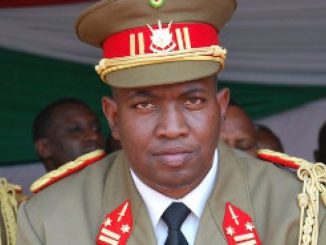
A Post-Ebola Plan for Sierra Leone
We need reforms that will help us recover from this crisis and boost our resiliency against the next.
By Ernest Bai Koroma
Nov. 26, 2015 4:06 p.m. ET
Earlier this month, Sierra Leone was finally declared free of Ebola. The celebrations in Freetown and across the country were jubilant, but our victory was bittersweet. So many of our brothers and sisters lost their lives fighting this evil virus. Families were broken. Children were orphaned. Our communities were plagued by fear and the hopelessness that the situation may never improve.
Today, our understanding of what is needed for our country to recover is clearer than ever. The devastation caused by Ebola was symptomatic of wider problems. My government is not only focusing on rebuilding Sierra Leone but also on pre-empting future disasters. We are confident we will come back stronger than ever.
Before the outbreak, our nation was on the verge of its greatest economic breakthrough. We were in the middle of significant infrastructure development. We were being hailed for sustaining our peace, strengthening our economic and structural reforms, the freedom of our press, and bringing more youths and women into high-level employment. The Ebola outbreak halted progress in many of these areas.
The past 18 months have taught us many hard lessons. We have learned that our public services and infrastructure require a complete overhaul. The outbreak put a severe strain on our public services. Our health service was forced to neglect other diseases, such as malaria, HIV and tuberculosis.
Meanwhile, school closures and quarantine measures deprived our children of their education. Teen pregnancies and sexual violence increased as girls fell victim to abuses from which they would otherwise have been protected. Basic public services cannot be expendable during times of crisis.
Sierra Leone’s infrastructure challenges predate Ebola, but inconsistent access to electricity, information and communications technology, and water and sanitation, exacerbated the problem. Poor roads and limited forms of transportation thwarted a more robust response to the disease.
We also learned that our political systems and community organizations need to collaborate better. Public skepticism of government hindered the national response early on as warnings, guidance and advice went unheeded. My government has renewed its commitment to good governance and reforming its institutions so that people might trust their political system and their representatives once again.
Underpinning everything is economic reform. Over the past 18 months our economy has battled two shocks: the Ebola epidemic and the collapse of iron ore prices. We must energetically pursue economic diversification so that we are less dependent on minerals, and we must review how we manage our mineral wealth. We also need to encourage our countrymen to pursue sustainable, local businessopportunities to develop a healthy private sector and not rely so heavily on foreign aid.
The fear of Ebola understandably discouraged foreign investment, but with a renewed commitment to reform and sustained investment in infrastructure and public services, we will capitalize on our natural resources for the prosperity of the country and the benefit of investors.
Our future success also depends on how we work with the international community. Enhanced regional cooperation with our neighbors in Guinea, Ivory Coast and Liberia will be essential.
Support from international organizations and donor nations will be equally important. But this also necessitates change on their part. Ebola not only highlighted weaknesses in West African nations but also in the World Health Organization, the United Nations, aid agencies and other national governments.
The crisis must serve as a wake-up call that reform of the WHO, whose bloated bureaucracy cost many lives, is long overdue. Similarly, a change to the outdated composition of the U.N. Security Council, on which no African nation is represented, is essential.
With these challenges in mind, I have an ambitious six-point plan for a better Sierra Leone:
• Instigate governance and system reform. Ebola caused socio-economic devastation, but the systems developed under this pressure serve as powerful examples of how to improve. These changes will stamp out corruption and encourage transparency for sustainable, Sierra Leonean-led development.
• Promote social cohesion, education and community mobilization. We need to develop programs and awareness campaigns that reinforce the reforms, working toward gaining the trust of the Sierra Leone people, increasing the legitimacy of government and harnessing the untapped human capital that will be a major safeguard against future crisis. We must therefore improve access to education, develop school food programs and reduce overcrowding in schools.
• Develop Sierra Leone’s private economy. We must nurture the growth of a healthy private sector by investing in skills, making support available to small- and medium-size enterprises, improving access to financial services, encouraging business that isn’t dependent on aid financing and supplies the local market, so that it can be sustainable and grow.
• Drive economic diversification. We must encourage the growth of industries other than mining, such as agriculture, so the economy is less vulnerable to external shocks.
• Invest in national infrastructure. We must build better roads, improve our airport and develop our port. We must also provide better access to electricity and power generation.
• Encourage foreign investment. We need to communicate to the international community that Sierra Leone is open for business and end the stigma attached to Ebola while mapping investment opportunities and actively promoting these to potential investors.
***
I am immensely proud of the resilience of my country. We have not only survived a decade-long civil war but have defeated one of the worst public-health crises the modern world has seen. The strength of the Sierra Leonean people should compel faith from the international community that we are ready, willing and able to seize the opportunities that have emerged from the devastation of Ebola.
Mr. Koroma is the president of Sierra Leone.
http://www.wsj.com/articles/a-post-ebola-plan-for-sierra-leone-1448571965



